Is your state a friend or foe to your 2nd Amendment rights? Does it make it hard to own and use guns? We’ve put together a list of the worst states for gun owners and your rights are under attack.
How did we do it? By looking at each state’s existing laws, future laws, rules for concealed carry, self-defense laws, and taxes related to the 2nd Amendment.
Here are the 25 states where gun ownership faces many challenges at the state levels of government.
25. North Carolina

In North Carolina, residents lawfully permitted to possess a firearm can open carry in many places, but they need to obtain a concealed firearm permit. Not all cities or counties in the state allow open carry without this permit. A North Carolina CHP (Concealed Handgun Permit) enables carrying in 37 states, and travelers from 48 states can conceal carry with their permits.
In North Carolina, firearms, ammunition, and accessories are not exempt from tax. However, the state protects against civil and criminal liability in life-threatening situations.
The state legislature recently vetoed a bill that would have allowed firearm purchase without additional steps, and residents no longer require permits to purchase firearms. Governor Roy Cooper supported the bill, creating uncertainty about North Carolina’s stance on this matter.
24. Maine

Maine is an open-carry state, where individuals over 21 who are legally permitted to possess a firearm can carry a firearm. Handgun purchases are restricted to those over 21 in accordance with federal laws, while individuals over 18 can purchase shotguns or rifles.
Firearm registration is not required in Maine, but purchasers must sign an acknowledgment of receiving a Safe Storage pamphlet with each purchase. The state provides tax exemptions for safety devices like safe storage boxes and trigger guards. Maine also has yellow flag laws that allow law enforcement to remove dangerous weapons from perceived threats.
Individuals with pending domestic violence charges, orders of protection, or pending felony charges are prohibited from owning, possessing, or purchasing firearms in Maine.
Governor Janet Hills recently transitioned from opposing gun control legislation to supporting it after a deadly mass shooting. The governor now intends to implement statewide background checks and ERPOs, despite Maine having one of the lowest gun-related death rates in the nation.
23. Ohio

Ohio is a Constitutional carry state, allowing individuals over 21 to carry a firearm without a permit, provided they are not prohibited from doing so. However, the state issues CHLs (Concealed Handgun licenses), which permit gun owners to carry in 38 other states, and Ohio recognizes permits from 49 states for travelers.
When purchasing a firearm in Ohio, buyers are subject to standard sales tax rates and must pass a federal background check when buying from an FFL dealer. Those engaged in regular gun sales in Ohio or anywhere else in the U.S. must obtain an FFL or face federal charges.
Ohio law provides protection for individuals in life-threatening situations, with the prosecutor bearing the burden of proof. The state also has Castle Doctrine and stand-your-ground exceptions, with no duty to retreat.
Governor Mike DeWine is currently urging the Ohio state legislature to implement more gun control measures, including tightening background checks and ERPOs, despite Ohio’s status as a Constitutional carry state.
22. Nevada

Nevada is an open-carry state where individuals over 18 can carry a firearm. Those who wish to conceal carry or travel with a firearm must apply for a CCW, which comes with various restrictions. Once obtained, this permit allows individuals to carry a firearm in 33 states, and Nevada honors CCWs from 27 states.
Private firearm sales in Nevada are subject to background checks, and firearm registration is not required. The state does not have safe storage laws or provide tax exemptions for firearms, ammunition, or accessories.
Nevada’s laws may protect individuals from criminal prosecution in life-threatening situations, with the right to stand their ground and no duty to retreat. The state also has a castle doctrine that protects reasonable acts of self-defense in the home.
Governor Steve Sisolak recently signed Red Flag legislation and supports more restrictions on gun owners in the state. While Nevada may not currently rank as one of the worst states for gun owners, it may move further down the list in the future.
21. Virginia

Virginia is an open-carry state with numerous restrictions, including a long list of places where carrying a firearm is prohibited. Individuals need the state’s CHP to conceal a firearm, and there are districts where even open carry is not permitted, so it’s important to be aware of local ordinances. With a CHP, individuals can conceal carry and travel to 35 states, as Virginia honors permits from 48 states.
Firearm registration or permits are not required in Virginia, but even private sellers must involve an FFL dealer to conduct a universal background check to comply with new laws. The state does not offer any firearm-related tax exemptions.
Virginia has statutes supporting a castle doctrine with no duty to retreat in one’s home, if not the aggressor. However, the laws regarding personal defense scenarios are considered somewhat weak.
While Virginia was close to implementing Red Flag Laws, the new governor, Glenn Youngkin, opposes gun control measures and tends to favor mental-health-related solutions.
20. Vermont

In Vermont, individuals legally permitted to carry a firearm can do so without a permit. However, the state has laws that make it more challenging for gun buyers to obtain firearms. For instance, selling a firearm in Vermont without an FFL is illegal, and individuals under twenty-one are prohibited from purchasing firearms. Vermont also restricts magazine capacity and firearm accessories such as bump stocks.
Vermont has more stringent background checks than many others. Background checks are required unless a firearm is gifted to an immediate family member. Vermont is a No-Issue permit state, meaning it does not offer enhanced permits, which can be either positive or negative, depending on the perspective. Vermont residents have some protections if they need to use lethal force in self-defense situations, but the state does not provide exemptions for firearms or accessories.
Governor Phil Scott has a history of signing gun control measures, indicating that Vermont will likely remain on this list for some time.
19. Wisconsin

Wisconsin is an open-carry state with a shall-issue carry permit status, allowing individuals who are lawfully permitted to possess a firearm to visibly carry one, unless they have a permit for concealed carry. However, rules regarding open carry vary based on local ordinances, so it’s important to research those before openly carrying a firearm.
Individuals seeking to conceal carry, including in vehicles, must complete an 8-hour instructor-led course and undergo the 21-day Wisconsin Department of Justice approval process. With a Wisconsin CCW, individuals can carry in 33 states, and travelers from 45 other states can carry in Wisconsin with their state’s CCW.
Wisconsin does not mandate firearm registration, and private sales without a background check are still legal as of early 2023. However, residents must pay sales tax on their firearms, like any other item.
While there are protections against prosecution when acting in self-defense, Wisconsin does not allow using force to protect property. The state operates under a Castle Doctrine with no duty to retreat.
Governor Tony Evers is open to implementing gun control measures. Still, the State legislature may not share the same views, making it challenging to predict Wisconsin’s future ranking on our list.
18. Delaware

Despite Delaware’s Constitution affirming individuals’ right to bear arms for the defense of their homes, family, and state, current legislators are actively pursuing the prohibition of “Assault Weapons” and certain magazines.
A bill to mandate permit requirements for all firearms purchases is being considered, although some residents can openly carry firearms without a permit (not concealed carry). Delaware has no firearm registration requirements, but firearms can only be purchased from an FFL dealer. Additionally, since Delaware does not have a state sales tax, firearms are exempt from taxes.
While Delaware lacks a stand-your-ground statute, residents have some protection in and over their homes through the state’s Castle Doctrine. Governor John Carney has a history of implementing gun control measures.
17. Oregon

Oregon allows open carry of firearms for individuals who are legally permitted to possess them, but the state imposes numerous restrictions on gun ownership, leading to a lower ranking on the list.
A CHL (Concealed Handgun License) is required for concealed carry. Applicants must complete a training course and be at least 21 years old. Individuals can travel to 25 other states with a CHL, but Oregon does not honor permits from other states.
Even private sales must go through an FFL dealer for federal background checks. Oregon is also debating permit-to-purchase requirements and extended waiting periods for background checks.
One positive aspect for gun owners in Oregon is the absence of sales tax on firearms. However, the state’s legal framework for self-defense relies on prior court rulings and statutes, leaving individuals at the mercy of existing legal interpretations.
Governor Tina Kotek is working with the state’s Attorney General to advocate for more gun control legislation, further solidifying Oregon’s position on the list of worst states for gun owners.
16. Pennsylvania

In Pennsylvania, individuals lawfully permitted to possess a firearm can legally open carry in public. However, there are numerous restrictions for gun owners in the state.
Individuals need to apply for a concealed weapons permit to conceal carry in Pennsylvania and 32 other states.
Individual firearm purchases require the involvement of an FFL dealer, and the state police maintain records of all firearms bought and sold. Additionally, firearms are subject to standard sales tax and an additional surcharge in Pennsylvania.
Pennsylvania provides castle doctrine and stand-your-ground protections, with no duty to retreat. Governor Josh Shapiro is an outspoken proponent of more gun control legislation.
15. New Mexico

In New Mexico, it is an open-carry state, but a carry permit is required to conceal a weapon. Additionally, individuals are limited to carrying only one concealed firearm in the state.
The process for the state to perform a background check and approve or deny a permit can take up to 90 days. Once obtained, the permit allows travel to 36 other states. New Mexico honors permits from 23 other states.
Although there are no registration requirements or permit-to-purchase statutes, purchasing firearms from private sellers is illegal, subjecting all sales to federal background checks.
Gun owners in New Mexico do not receive tax exemptions for exercising their Second Amendment rights, including for safety equipment. The state does not offer the same castle doctrine protections as some other states, and individuals are expected to try all other de-escalation methods before resorting to self-defense.
Governor Michelle Lujan Grisham recently signed legislation that places the responsibility on gun owners to keep firearms stored and secure. Under this new law, if a minor gains access to a firearm and it results in injury, the gun owner is criminally liable.
14. Nebraska
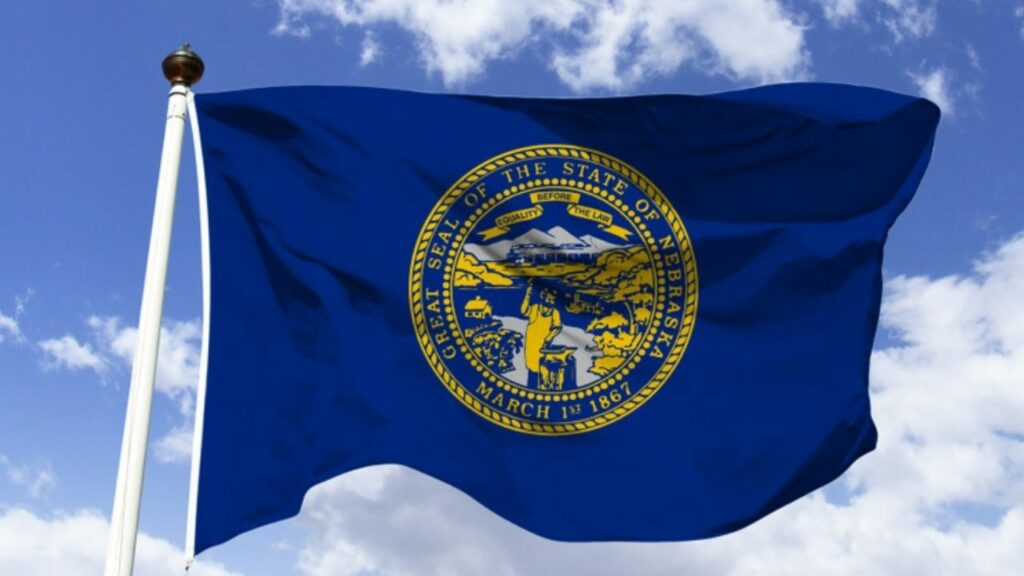
Nebraska is an open-carry state with some exceptions in local jurisdictions, and only individuals with a Concealed Handgun Permit (CHP) may conceal carry their firearms. It is also a requirement to have a CHP to purchase a firearm under any circumstances. However, individuals with a CHP can legally conceal carry in 33 other states, as Nebraska honors permits from 35 other states.
To obtain a permit and purchase firearms, individuals must complete a certified firearms training course in addition to a background check.
Nebraska does not provide any tax breaks related to the Second Amendment. All firearms, ammunition, and safety devices are subject to standard tax rates.
Nebraskans are protected under the state’s castle doctrine, but there is a duty to retreat if the individual is the aggressor. Individuals may also be free from prosecution if they are in their workplace or defending another person’s life.
Governor Jim Pillen recently signed a bill to allow constitutional carry in the state, potentially allowing individuals to conceal a firearm without a permit. This development indicates that Nebraska may move further up in the list of states for gun ownership in the near future.
13. Colorado

In Colorado, individuals with the legal ability to possess a firearm can open-carry without a permit. Still, a CHP (Concealed Handgun Permit) is required for concealed carry and to exercise several other firearm-related rights. Individuals can carry their firearm to 33 states with a CHP, and Colorado accepts visitors’ permits from 33 other states.
All firearm purchases in Colorado, even private ones, must go through an FFL, which conducts background checks with the Colorado Bureau of Investigation and the federal government. The state also has safe storage laws but does not offer tax exemptions for the equipment.
Colorado’s self-defense laws provide some protection for individuals acting in self-defense, although the state does not have stand-your-ground protections.
The state is a battleground for pro-2A and pro-gun control advocates, with Governor Jared Polis supporting more gun control measures while 2A advocates are actively launching lawsuits. A recent example of the turmoil for gun owners in Colorado is the introduction of a bill that bans “assault” rifles. The outcome remains uncertain, and where Colorado will land is unclear when all the dust settles.
12. Minnesota

In Minnesota, only residents with a PCP (Permit to Carry a Pistol) can legally carry a firearm in the state. With a PCP, individuals can legally carry their firearm in 30 other states, but Minnesota only honors gun permits from 15 others.
Gun owners in Minnesota can purchase firearms from private sellers, but the seller commits a misdemeanor for selling to unknown individuals without proper identification. Federal background checks are required when purchasing firearms from an FFL dealer, and firearms, ammunition, and safety equipment are subject to the state’s sales tax.
Minnesota residents have some legal protections related to self-defense, but there is a duty to retreat. Despite existing laws, Minnesota’s State Legislature and Governor Tim Walz advocate for more gun control measures, such as private sales background checks and red flag laws.
11. Washington
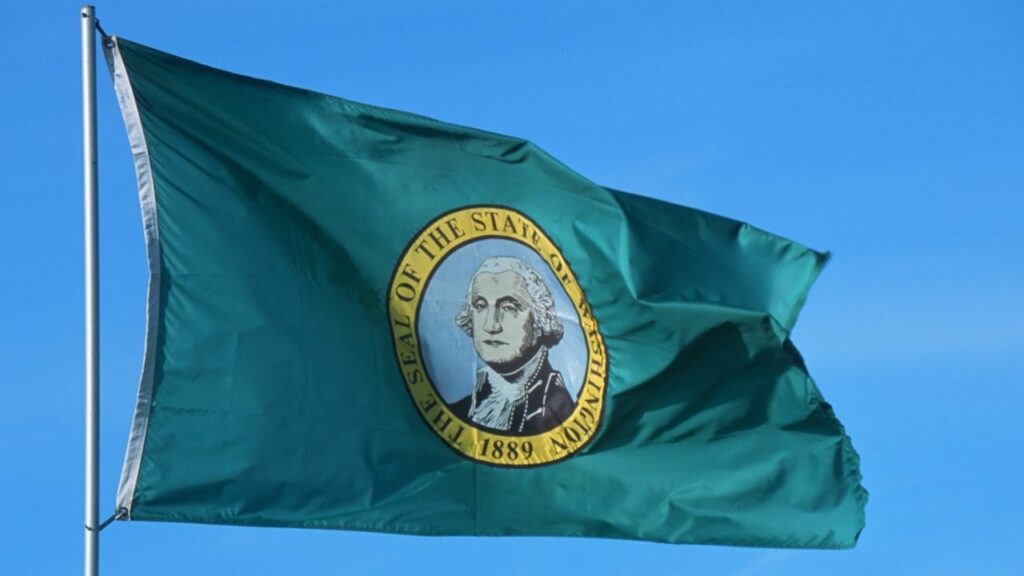
While Washington is an open-carry state, there are restrictions, and the state is not particularly gun owner-friendly. Washington has laws against private firearm sales, requiring all firearm sales to be recorded by an FFL dealer, and the state can take up to 10 days to run a firearm background check.
Individuals can obtain a permit to carry a firearm in Washington, allowing for concealed carry and carry in 28 states (Washington honors permits from nine states). The state also provides tax exemptions for the sale of firearm-related safety equipment such as gun safes and lock boxes.
More recently, Washington State legislators have signed several bills into law that restrict gun owners. The state now bans “assault” weapons, and there will soon be additional training requirements and a 10-day waiting period for firearms purchases.
10. Michigan

At present, individuals in Michigan can openly carry firearms without a permit if they are eligible to possess one. Those who wish to conceal carry must obtain a CPL, but restrictions include keeping the firearm visible on school property. Michigan has reciprocity agreements with 39 other states and honors permits from 48 states.
Individuals over 21 must have a permit to purchase a handgun and must purchase firearms through an FFL dealer, which also requires record-keeping of those purchases. However, individuals aged 18 can purchase long guns from private sellers without a permit.
The state also offers tax exemptions for firearm safety devices and has gun safety requirements. In life-or-death situations, Michigan provides stand-your-ground protections with no duty to retreat.
Michigan’s recent gun laws have garnered national attention. Governor Gretchen Wilson introduced measures requiring background checks for every firearm purchase, including private sales, securing firearms in compliance with state standards, and implementing Red Flag Laws, which have implications for 2A freedoms.
9. Rhode Island

In Rhode Island, individuals cannot carry a firearm without a permit or purchase a firearm without a permit or Blue Card. Residents cannot obtain a firearms permit without providing proof of need, and there is a 7-day waiting period for firearm purchases. Additionally, residents must be 21 years old to purchase firearms, and “large capacity” feeding devices are illegal. The state also has gun registration requirements.
In situations requiring the use of a firearm, Rhode Island provides castle doctrine protections with no duty to retreat.
Governor Dan McKee has indicated that an “assault” weapons ban is on the horizon in Rhode Island. As of now, there is no apparent progress toward supporting gun ownership in the state.
8. Massachusetts

In Massachusetts, residents can now apply for an LTC (License to Carry) following the Supreme Court ruling in NYSRPA vs. Bruen. However, individuals cannot carry a firearm without one. Additionally, individuals must have a Firearm Identification Card or LTC to purchase a gun in the state, and there is a 7-day window to register a purchased gun with the state.
While there may be some tax breaks for gun safes and trigger locks, gun owners in Massachusetts have a legal duty to secure firearms per state-mandated guidelines. In self-defense situations, individuals have a duty to retreat and take measures to prevent the use of force.
Governor Maura Healey is an active proponent of more gun control restrictions despite the state’s constitution. It is likely that Massachusetts will remain on this list for some time.
7. Maryland
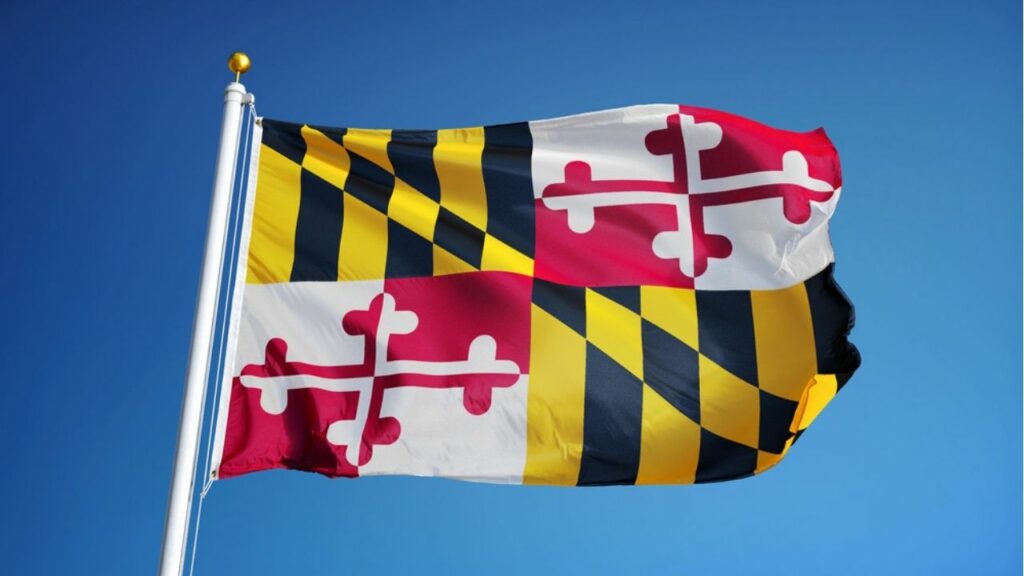
Maryland is affected by the recent Supreme Court decision NYSRPA vs. Bruen, allowing gun owners to apply for concealed weapons permits. However, individuals must complete a 16-hour training course before applying for the state’s WCHP. Maryland does not honor gun permits from any other states, but individuals can travel to 26 states with their permit.
Prospective gun owners in Maryland must obtain a permit to purchase a firearm, register their guns, and complete a background check for each firearm purchased. On a positive note, there is a $500 tax exemption available on eligible gun safety equipment. However, there are regulations regarding what individuals can have, where they can carry, and when. For example, the state bans “assault” weapons, but the AR-10 is permissible.
Governor Wes Moore strongly opposes the Supreme Court ruling upholding a citizen’s right to carry firearms and is therefore seeking to enact more gun control through State Legislators.
6. Connecticut

In Connecticut, residents must obtain the state’s CTPP (Connecticut State Pistol Permit) to carry a firearm, with the issuing jurisdiction having discretion over approvals. Individuals who obtain the state’s permission to carry a firearm must pass a firearm safety course with five live-fire sessions, which allows them to conceal carry or travel to 27 states.
Connecticut offers sales tax exemptions for safety equipment when purchasing a firearm. In self-defense situations, the defendant bears the burden of proof, and citizens have a duty to retreat to the state.
Governor Ned Lamont continues to advocate for more gun control legislation, including proposals to limit the number of firearm purchases per individual to only one per month.
5. New Jersey

In New Jersey, residents cannot carry a firearm without a permit and must apply at their local police department and then proceed to higher courts to obtain approval.
Individuals who obtain a PCH (Permit to Carry a Handgun) can conceal carry and legally carry their firearm in 26 other states. Still, New Jersey does not honor any other state’s firearms permits.
Gun owners must obtain a Firearms Purchaser Identification Card (FPIC) before buying guns from an FFL dealer or private seller. The FPIC is also required to purchase handgun ammo.
Despite these requirements, residents do have castle doctrine protections under NJ state law. However, Governor Phil Murphy is actively working to impose further limitations on citizens’ rights to keep and bear arms.
4. Illinois
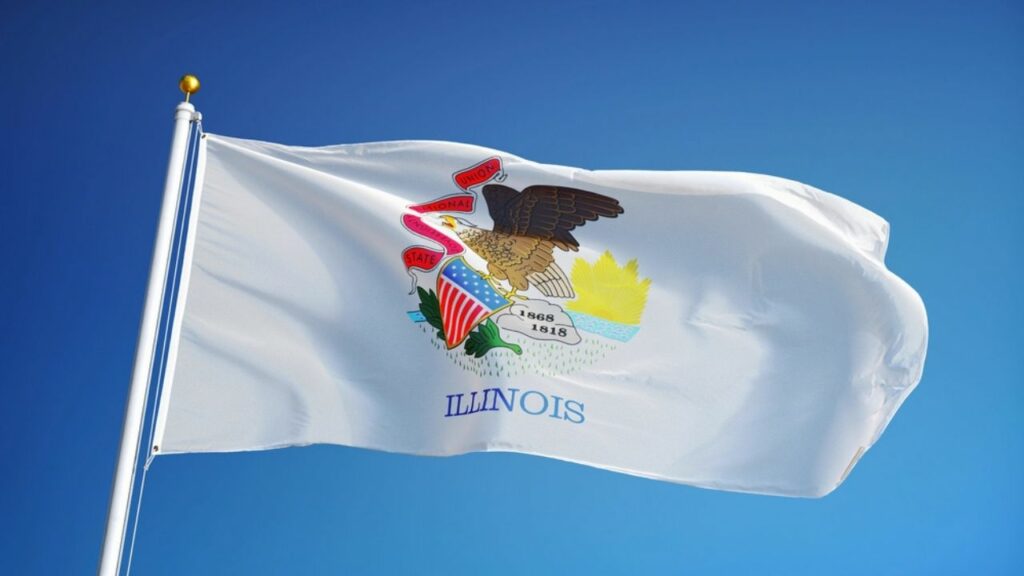
In Illinois, individuals over 21 can apply for a CCL (Concealed Carry License) with the State Police, allowing residents to conceal carry but not openly carry. The police reserve the right to deny anyone a license, and individuals must complete a 16-hour firearms training course before applying. The state offers non-resident permits for individuals from six states but honors no out-of-state permits.
Prospective purchasers must obtain a FOID card from the state police before attempting to buy guns from an FFL dealer or private seller. There is no firearm registration in the state, and there are no tax breaks for firearm safety equipment, firearms, or ammunition.
Illinois law does not explicitly outline whether a civilian has a duty to retreat; however, the state’s Supreme Court has upheld that there is no duty to retreat from a threatening individual.
Governor JB Pritzker and the Illinois State Legislature recently banned “assault” weapons and “high-capacity” magazines. It is likely that Illinois will remain on the list of worst states for gun owners for the foreseeable future.
3. New York
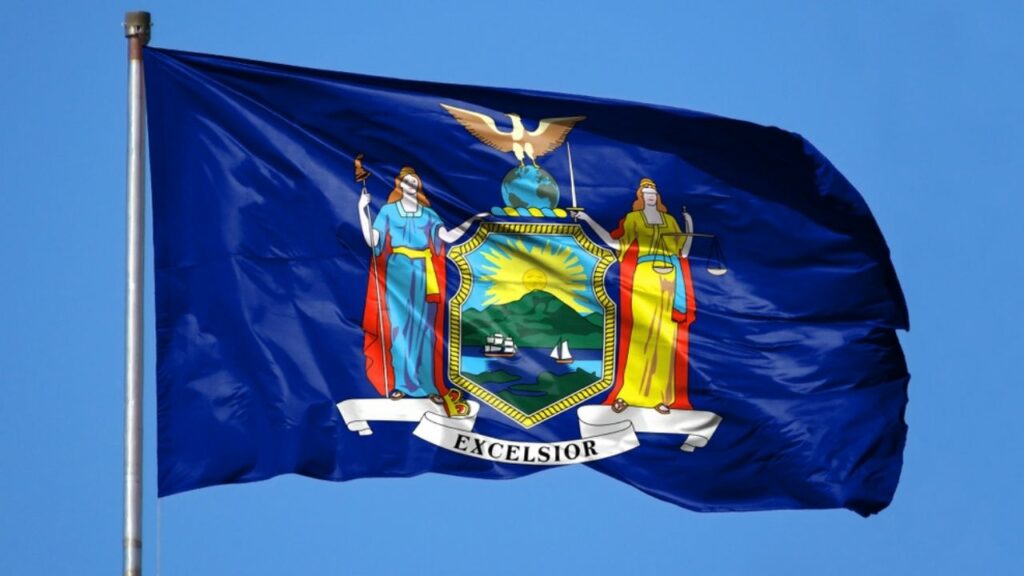
In New York, individuals cannot legally carry a loaded firearm outside of their home without an NYPL. All firearms must be registered, and individuals are subject to extensive background checks and a permit-to-purchase requirement.
Despite having a CCW status, visitors from other states cannot carry in New York. The state also imposes restrictions on magazines, accessories, and firearms. Individuals with firearms in the state must always keep them secure and away from others. Firearms purchases in New York State are subject to the standard sales tax, and there have been attempts to implement additional fees for firearms purchases.
In situations requiring self-defense in New York, individuals have a duty to retreat unless they are in their home. However, if a reasonable person agrees that retreating was not an option, individuals are protected from prosecution.
New York gun owners recently received relief as the Supreme Court ruled that concealed permits must be offered locally. However, Governor Kathy Hochul is a staunch gun control supporter and will continue to work toward more restrictive measures.
#2 California

California is known for its stringent gun laws, making it one of the most challenging states for gun owners. Open carry without a permit is not allowed, but thanks to a Supreme Court ruling, obtaining a permit is now a reasonable possibility. Californians who own “assault” weapons or “high-capacity” magazines are required to register them with the state’s DOJ Firearms Bureau.
Residents are limited to purchasing one firearm every 30 days and must wait a period before making a purchase, with exceptions in certain cases. Despite these restrictions, California is a stand-your-ground state, meaning individuals have no duty to retreat from a life-threatening situation.
The state’s influence in gun control legislation has made it a trailblazer for other states, solidifying its position as one of the worst states for gun owners. With Governor Gavin Newsom at the helm, California will likely continue to be a challenging environment for gun owners.
1. Hawaii

Hawaii is considered the worst state for gun owners, with many unreasonable laws and active defiance of the Supreme Court challenging the right to keep and bear arms. Only those with a carry permit may possess a firearm in Hawaii, but the state does not always issue permits.
A Hawaii carry permit allows individuals to carry in 26 other states, but visitors’ permits are not accepted, with exceptions for travelers who meet specific criteria, such as hunter’s safety courses.
Individuals must obtain a firearm permit, and even those bringing firearms to the state must register their guns within five days. Additionally, Hawaii has no tax breaks for firearms or safety equipment.
Residents of Hawaii have some use of force protection in the courts, but there is a duty to retreat and use only the necessary force to defuse a situation. Governor David Ige is a gun control proponent with a history of anti-NRA rhetoric.





















